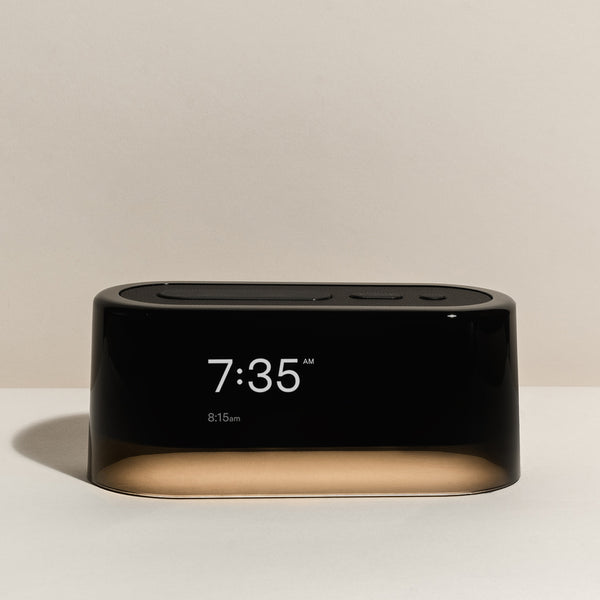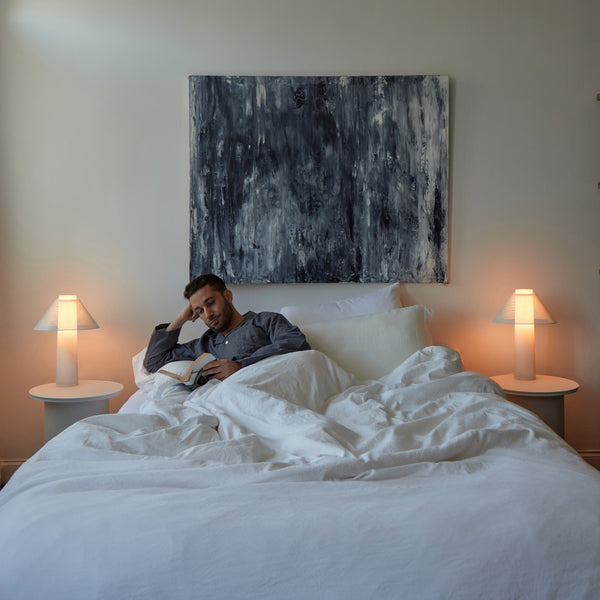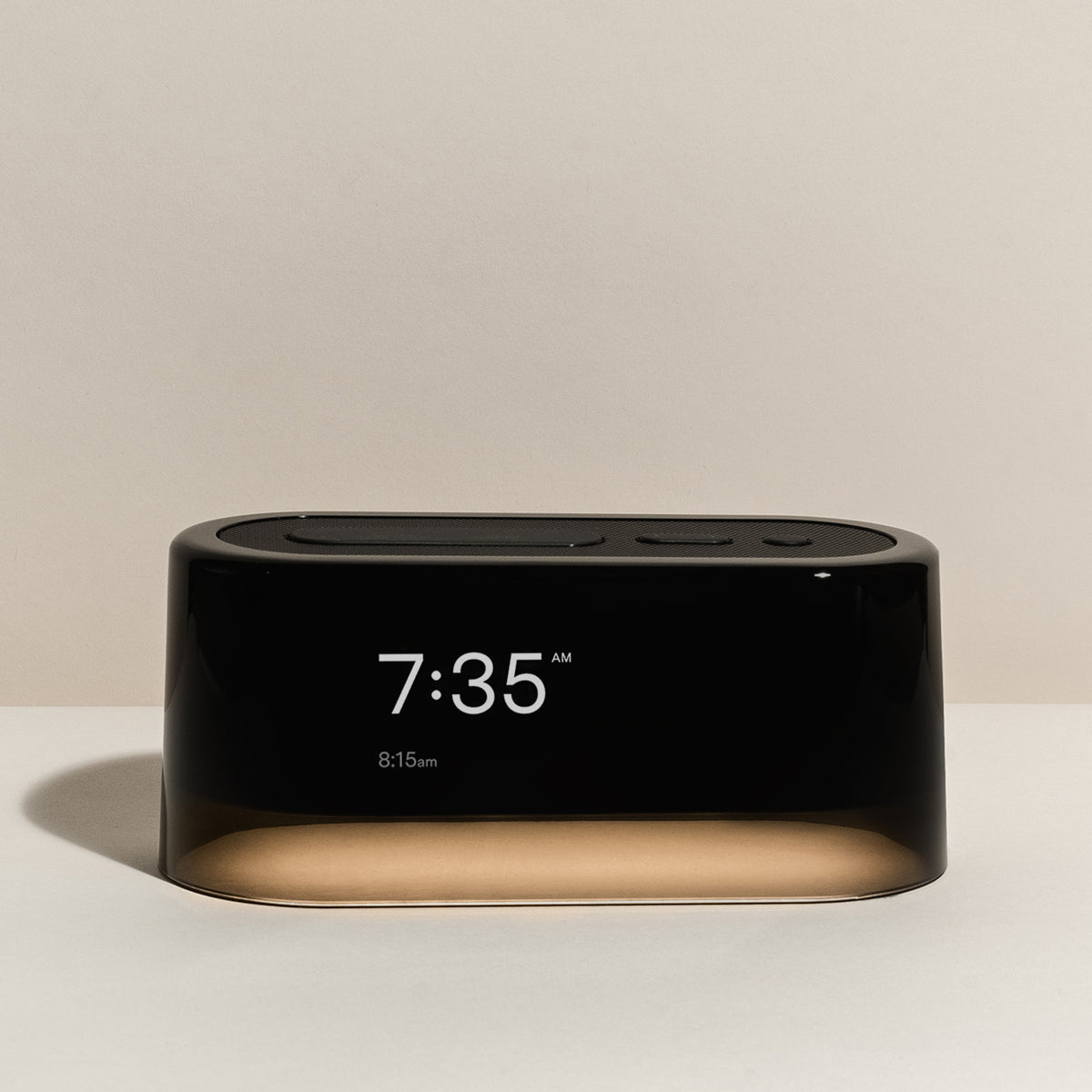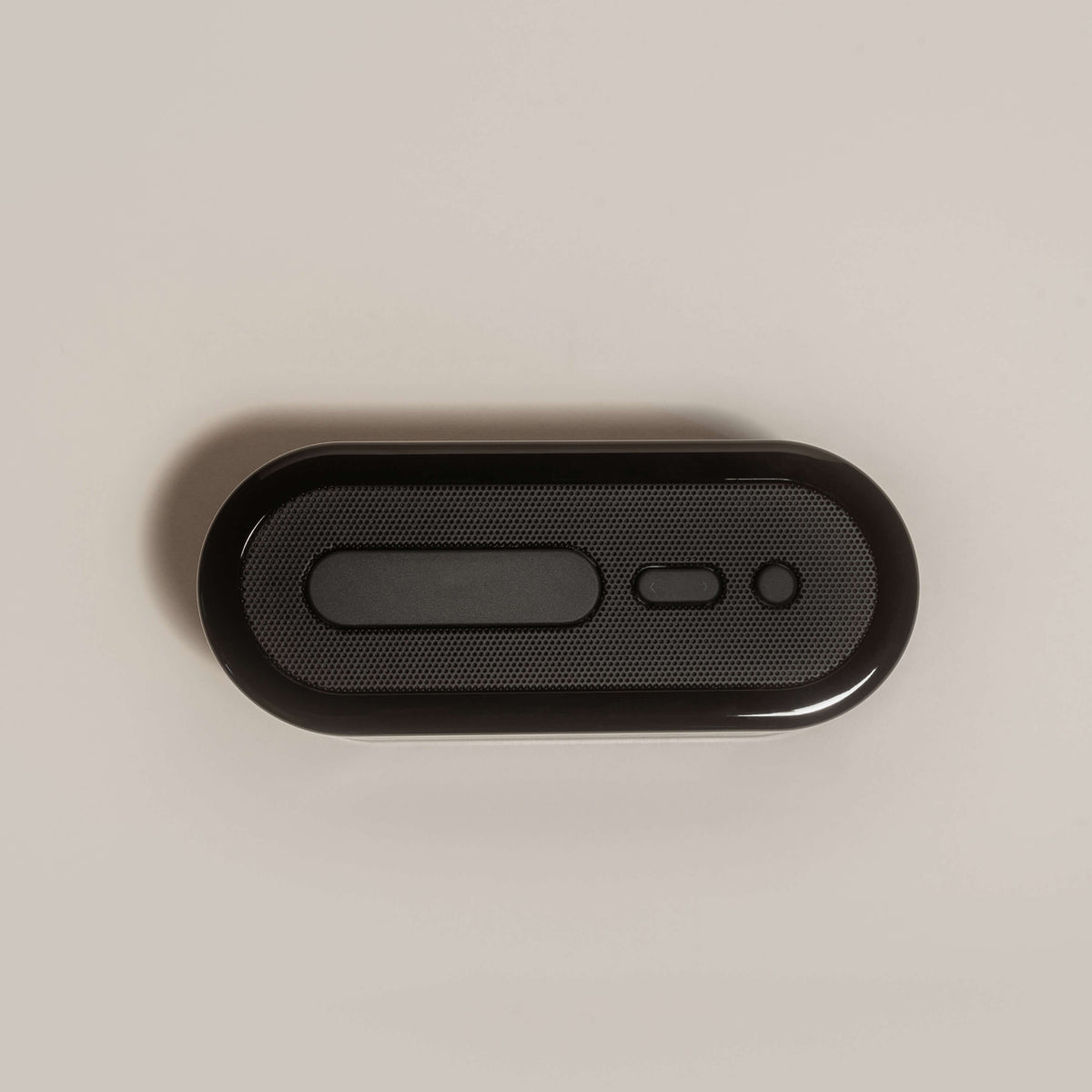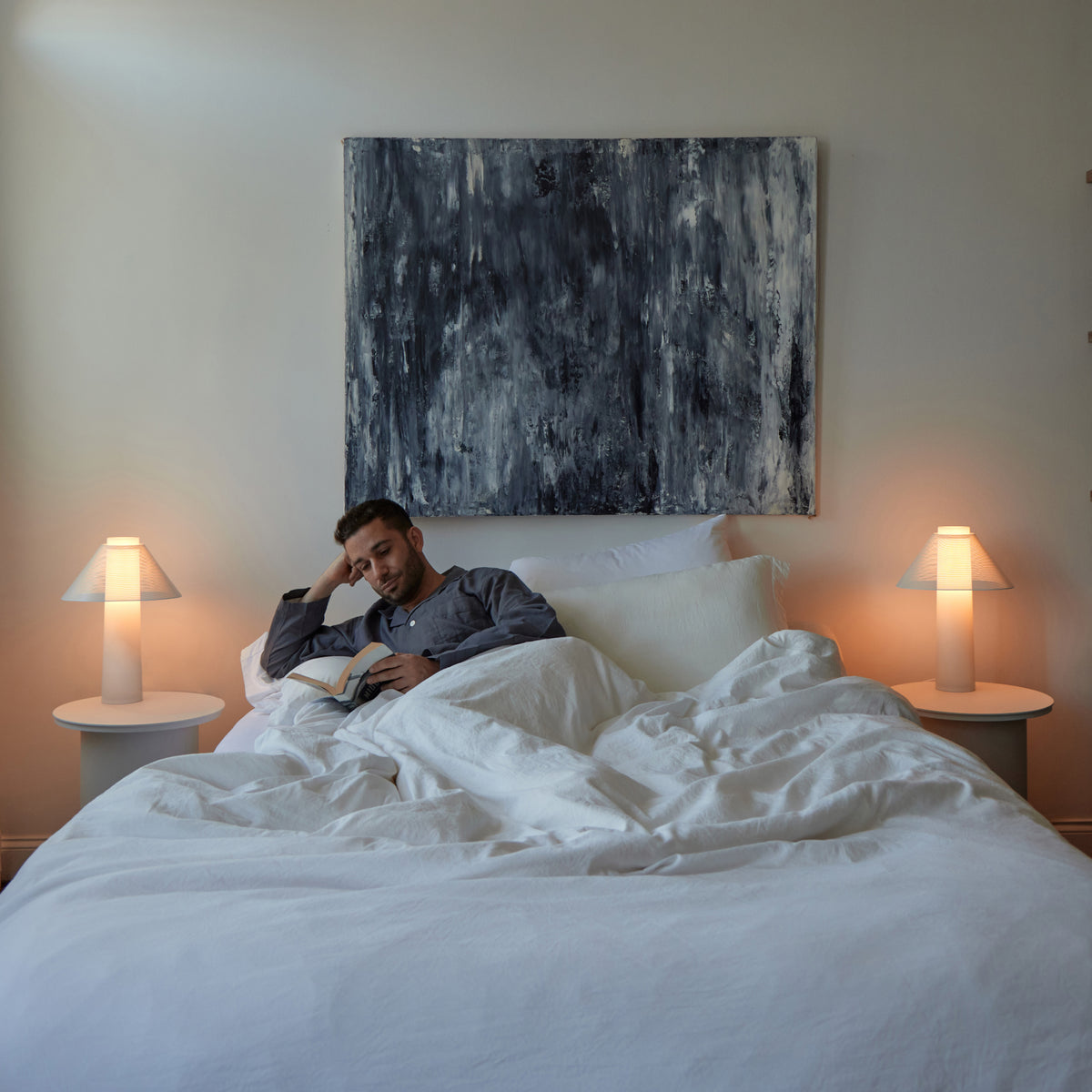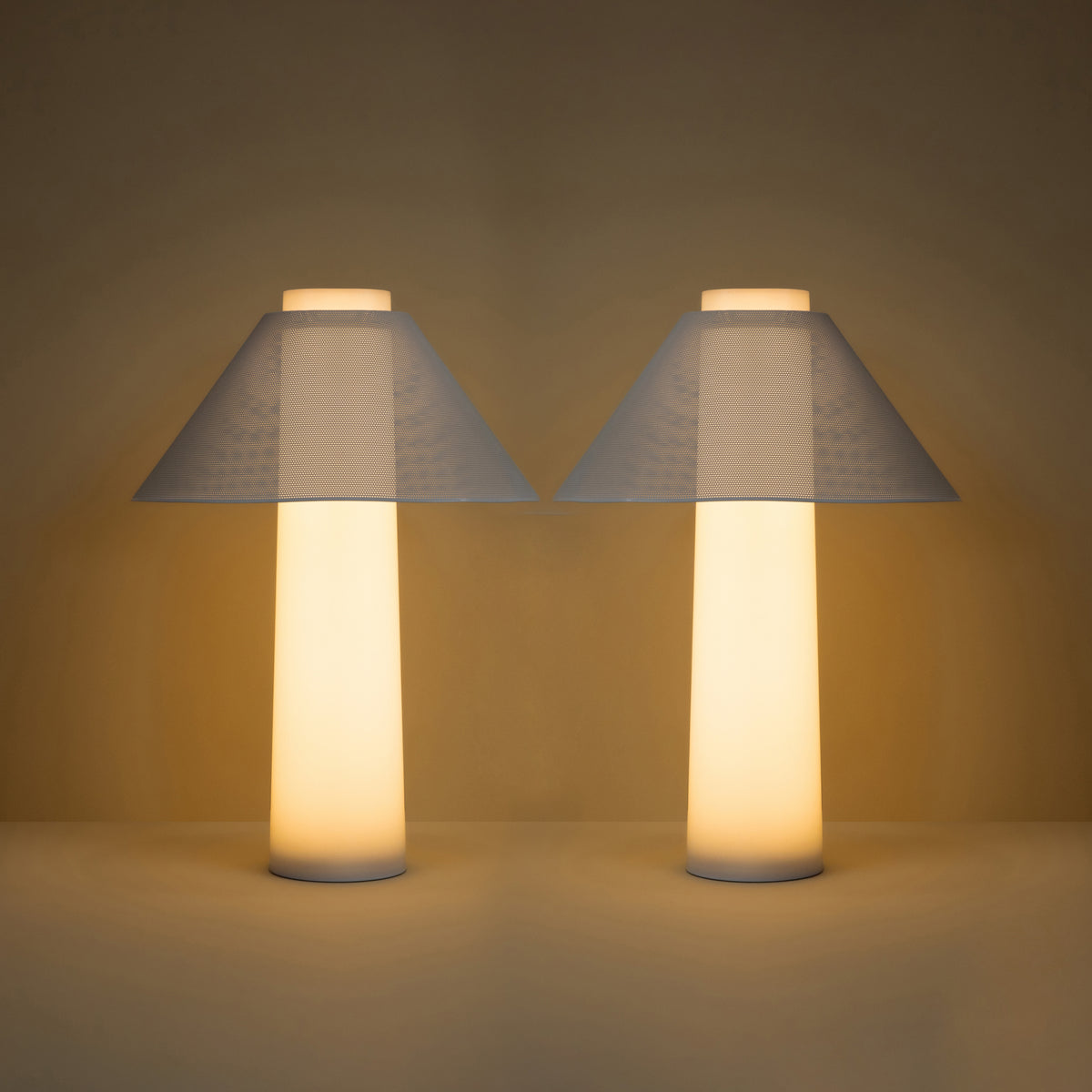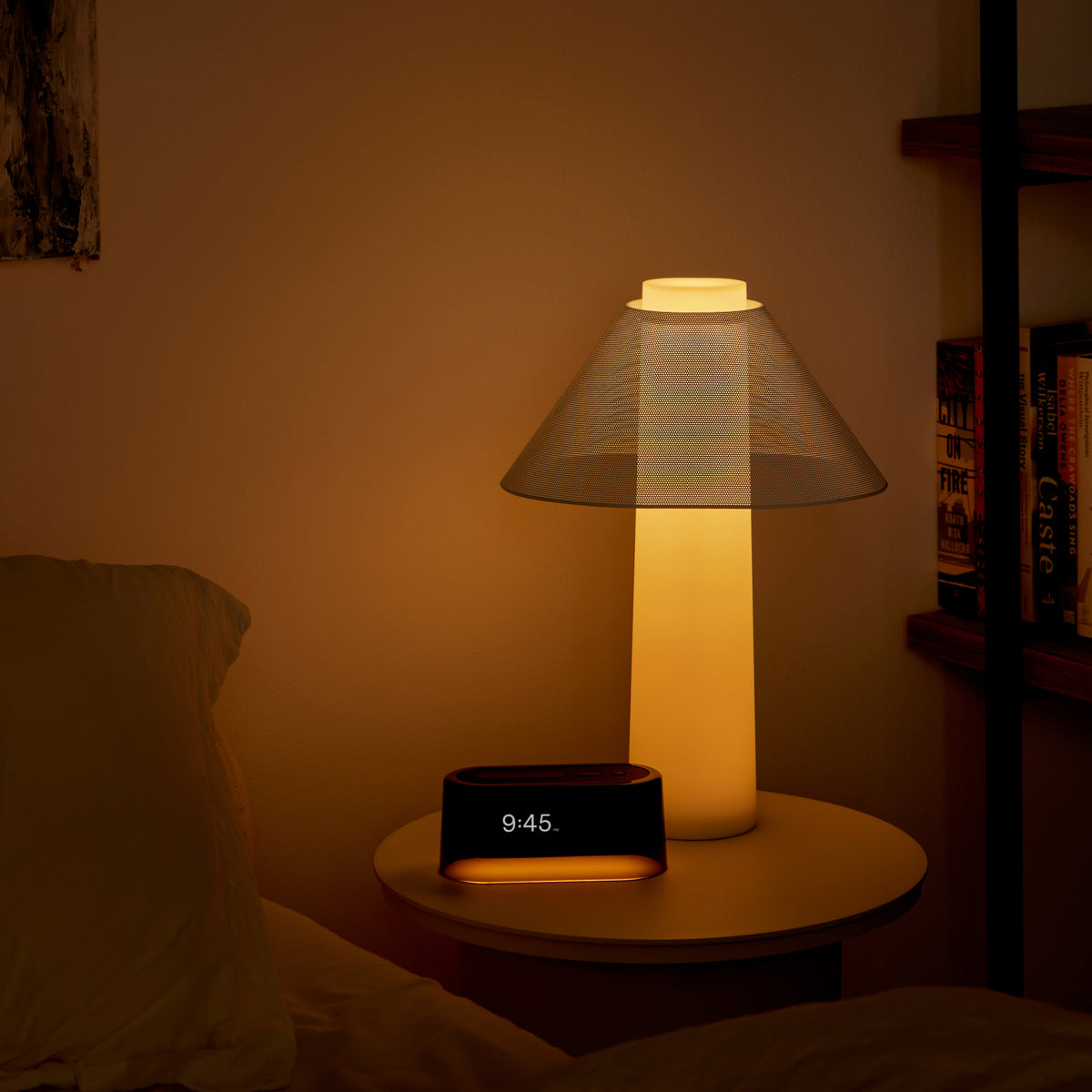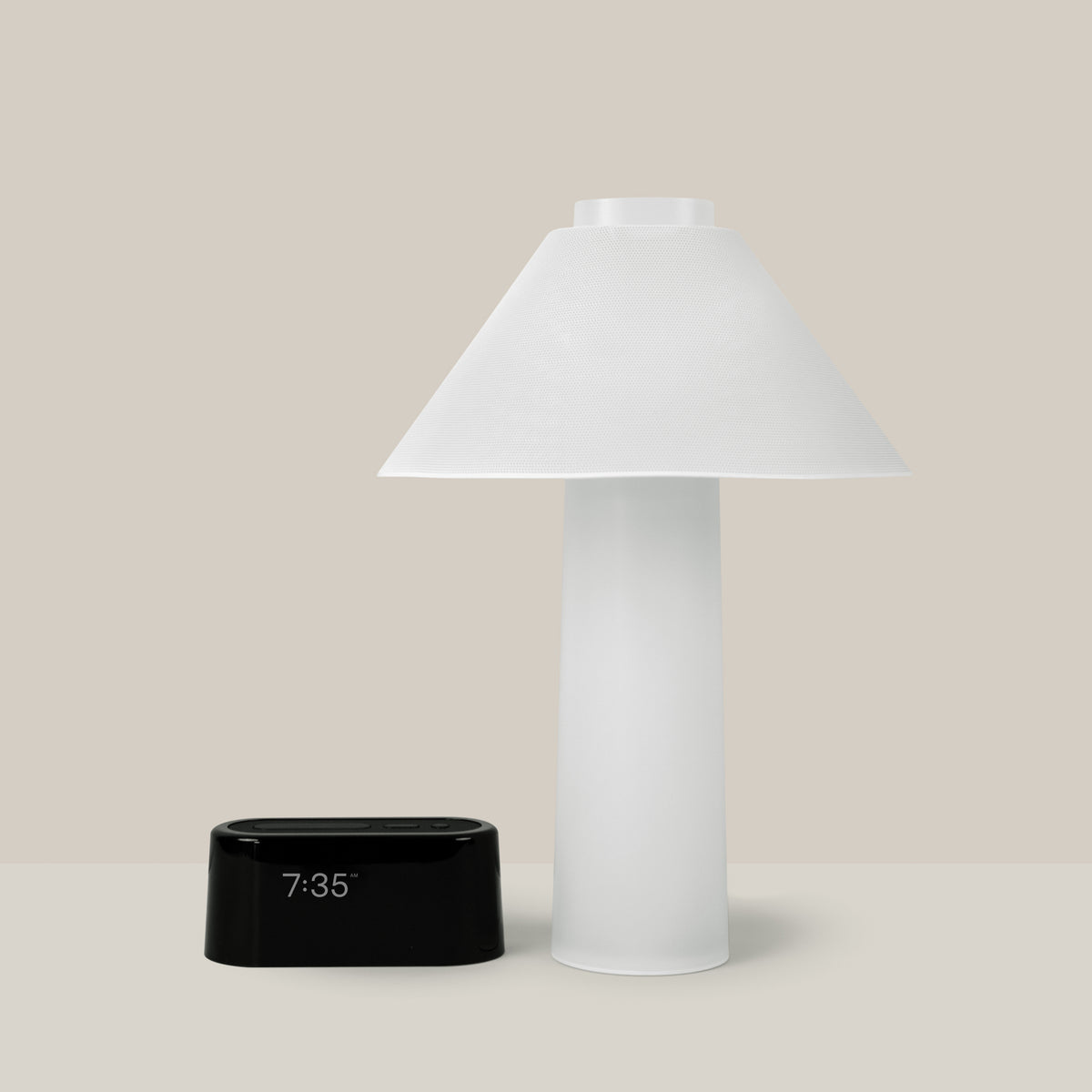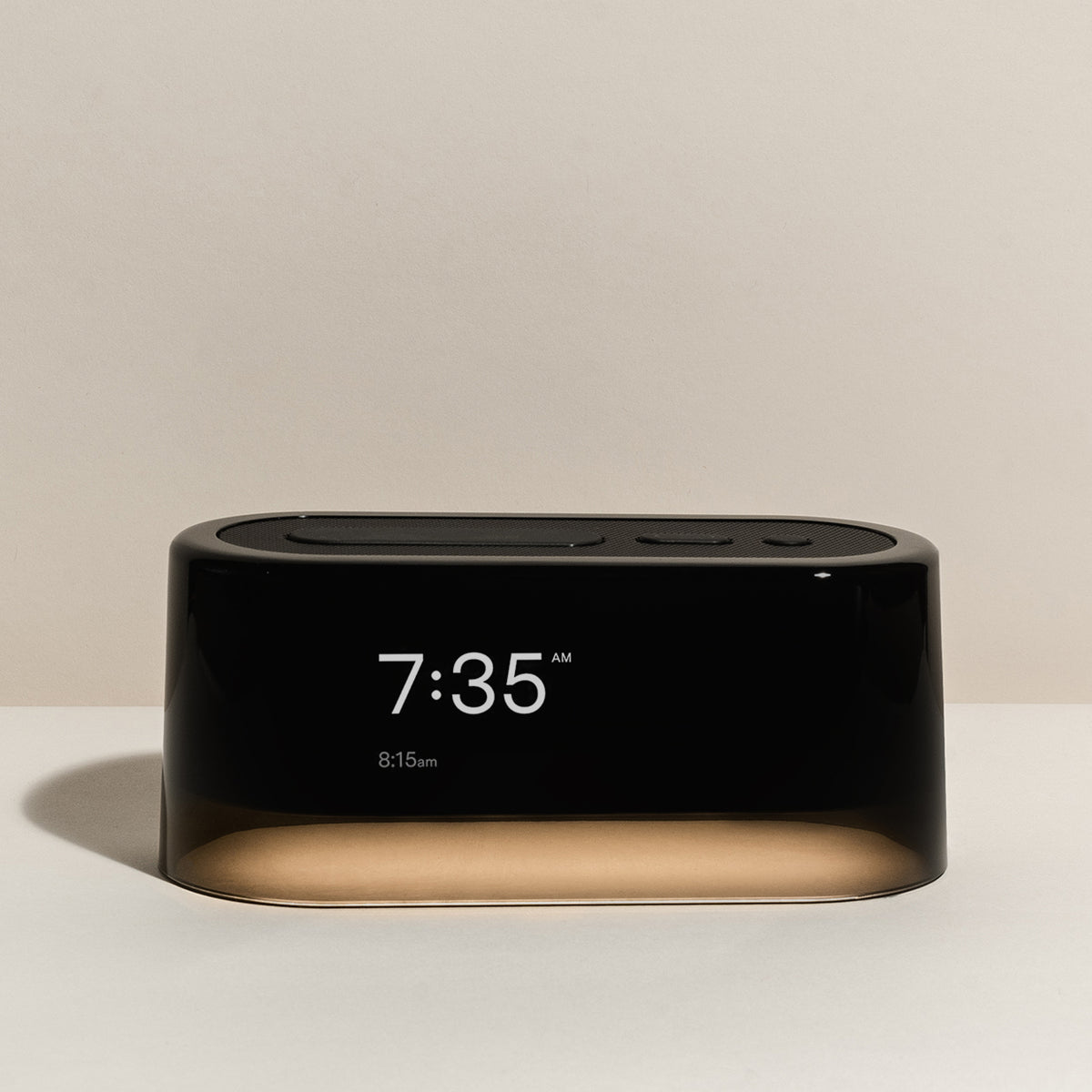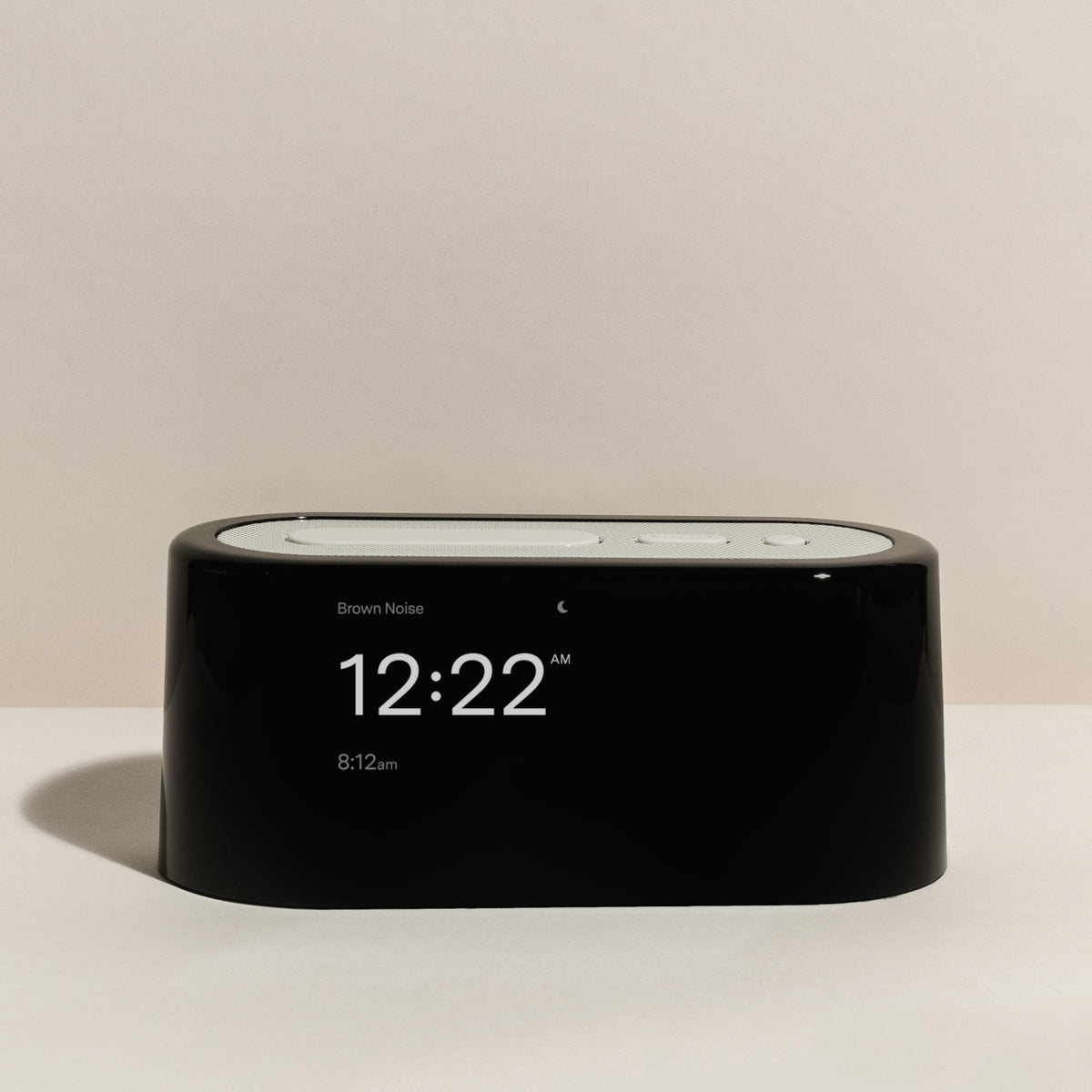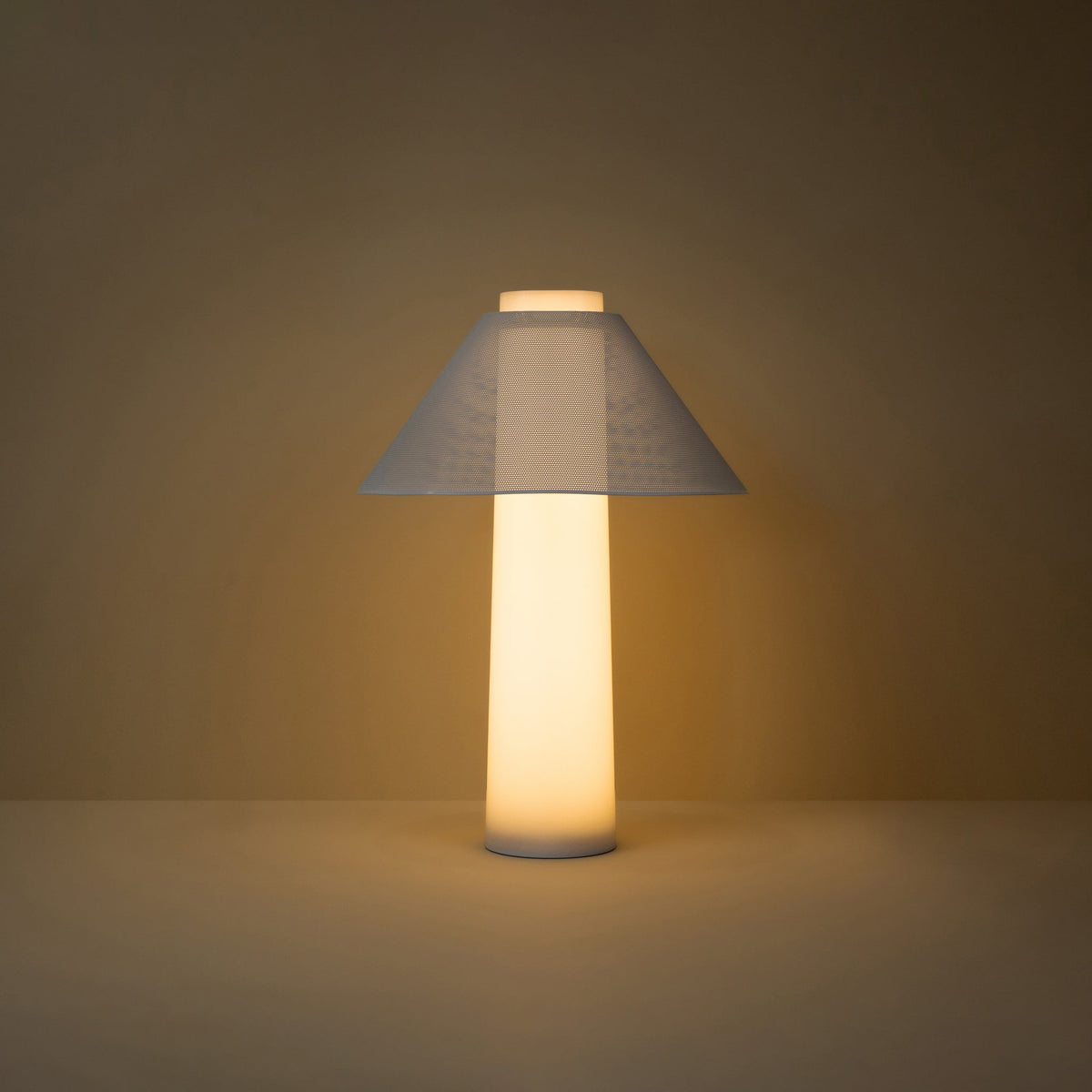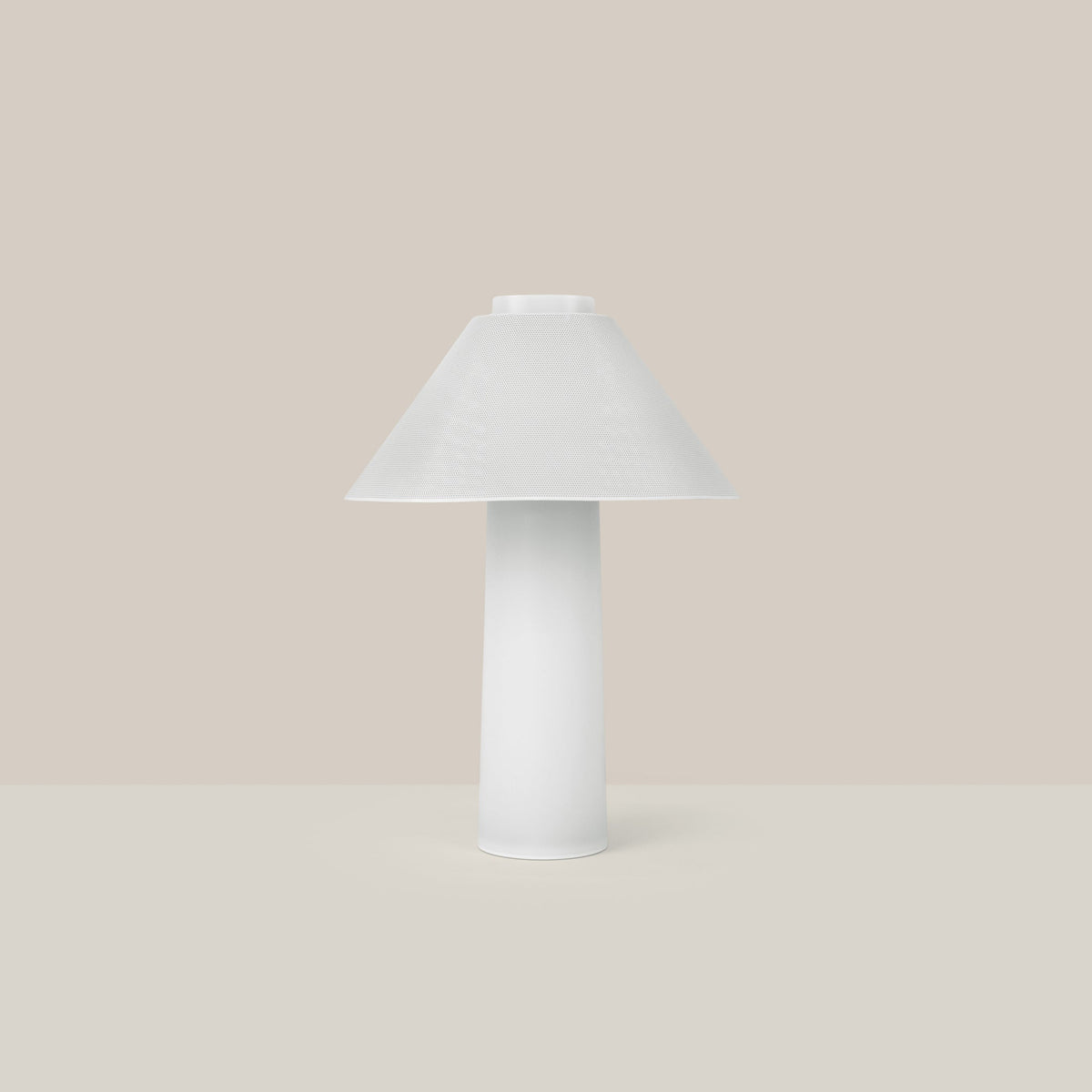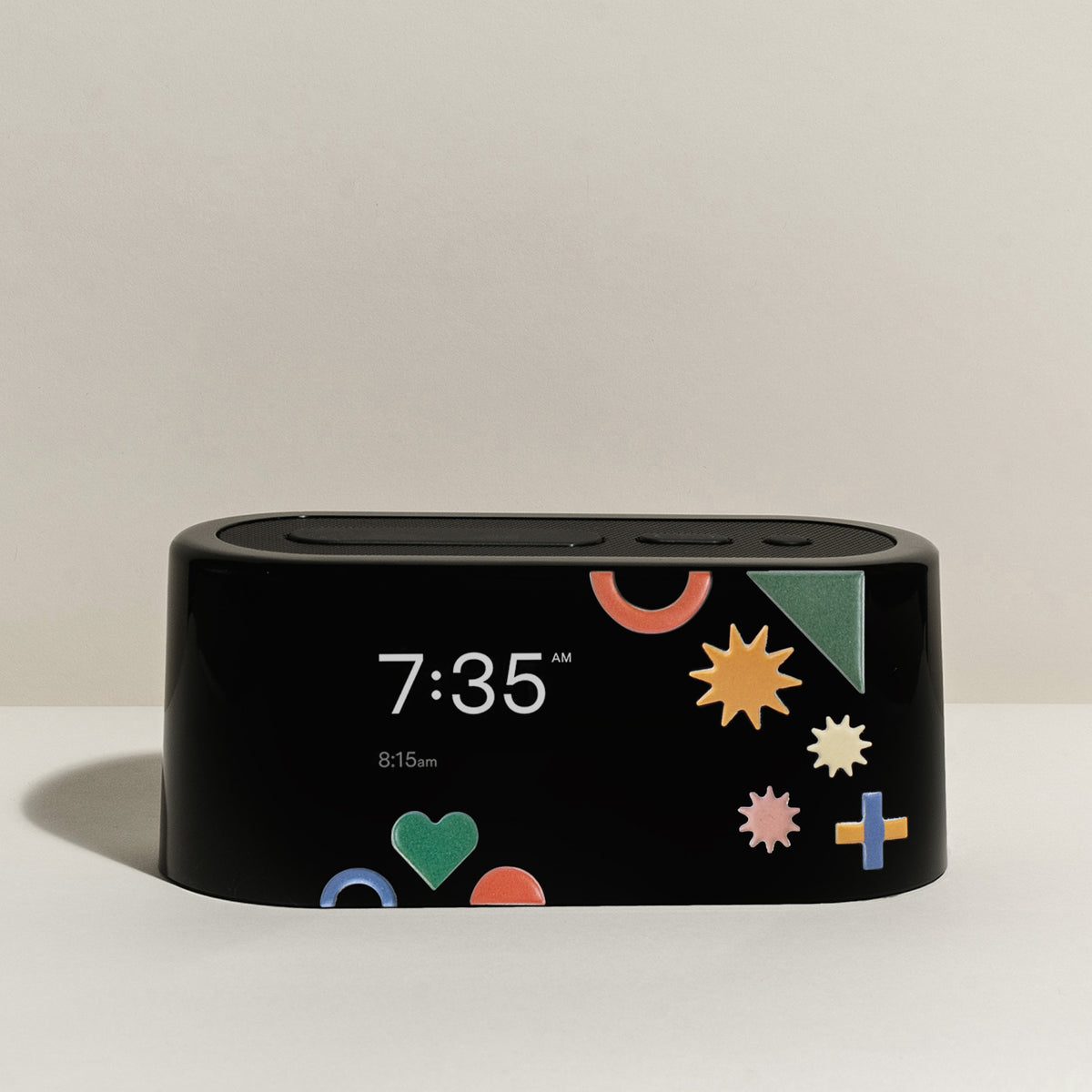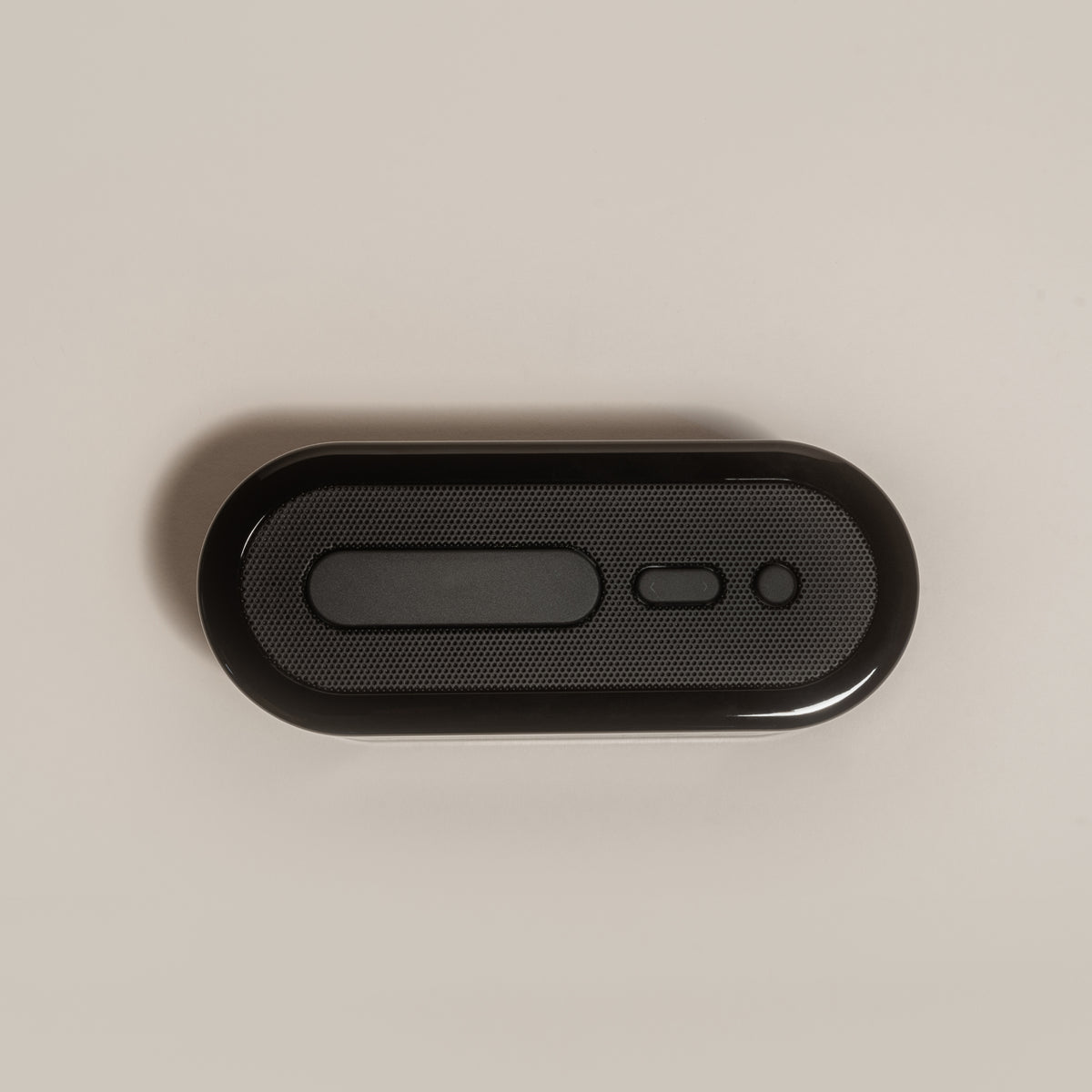We all know the toll of an all-nighter, and while this might be easy to bounce back from once or twice, but what if it persists? For instance traveling or moving to a new time zone, working the night shift, or having a newborn baby. Knowing how to fix your sleep schedule when your routine gets interrupted is critical for maintaining your mental and physical health.
Establishing a consistent sleep schedule and sticking to it will help your body and circadian rhythm (your body’s natural sleep-wake cycle) adapt so you can fall asleep easier and get better quality sleep over time. Here are 10 ways you can fix your sleep routine to wake up feeling fully rested.
1. Get right with the light
Light is one of the biggest disruptors of sleep because of its effect on melatonin, a hormone that tells your brain when it’s time to go to sleep. Dark rooms at night encourage melatonin production and make you feel naturally drowsy. It’s best to have a sleep light in your bedroom that can encourage your natural sleep-wake cycle so that it gradually brightens in the morning then dims in the evening to signal to your body that it’s time to go to bed.
2. Practice relaxation
A sleep disruptor we all know too well is stress and anxiety. They both can raise cortisol making it feel nearly impossible to fall asleep. Experts suggest that anxiety at night is often connected to sleep disturbances like insomnia. We suggest these relaxation techniques for sleep: meditation, a warm bath or shower, a hot cup of caffeine-free tea, or winding down with an audiobook. Turning off phone notifications to keep distractions to a minimum at bedtime to help you fall asleep and stay asleep.
3. Skip naps
It may sound counterintuitive to improving sleep, but napping during the day can make it a challenge to establish your best sleeping schedule. Long naps can cause you to feel groggy because they disrupt deep sleep and inhibit you from sleeping at bedtime, creating a vicious cycle. If you absolutely need to nap, it’s best to nap for less than 30 minutes total and before 3 p.m. so you don’t impede on your scheduled bedtime.
4. Get daily exercise
Incorporating at least 30 minutes of moderate aerobic activity has shown to improve sleep. Studies show that exercise can improve sleep disorders as well as improve physical activity throughout the day. Experts suggest 30 minutes at least five times a week can promote melatonin production at night. However, exercising too intensely within two hours of bed can have a negative impact on sleep, as it can be too stimulating and have the opposite effect.
5. Avoid noise
It comes as no surprise that the ideal sleep environment is one that is quiet. However, this is not always achievable. Whether you live in a city or next to a partner who snores, we can’t always have the ideal peace and quiet we desire. In these cases a white noise machine can be particularly helpful.
One study found patients who slept with white noise experienced higher quality sleep than those who didn’t. Researchers concluded that white noise was able to mask the surrounding noise levels which helped patients fall asleep and stay asleep in a noisy environment. You can recreate white noise with a fan, air conditioner, humidifier, or air purifier. Or when all else fails, ear plugs are another low-cost solution.
6. Keep it cool
Creating a comfortable temperature in the evening is essential for healthy sleep. The National Institutes of Health found that the temperature of the bedroom is one of the most important factors in getting high-quality deep sleep. Give or take a few degrees, experts agree that the ideal temperature for sleep is about 65°F (18.3°C). This cool temperature signals your body that it’s time to rest. Infants might require a slightly higher room temperature than adults by a few degrees, but too hot and they can get overheated.
7. Keep it regular
Routine is the best remedy for sleep. Pick a wake and sleep schedule and stick to it—even on weekends. Stay within 20 minutes of this chosen time and your body and mind will thank you. Like adopting any new habit, our internal clock needs some time to adapt to a new routine. Training you body and mind to be alert and wind down when you want to will come with a little practice. Another way to make the transition easier is with the Loftie Clock, a two-phase alarm that mimics your body’s natural waking process and wakes you up gradually.
8. Try fasting
We all know a healthy diet has a variety of benefits but fasting might also achieve deeper sleep. Research suggests that what we eat before bed can also impact the quality of our sleep. Particularly, the effects of high carbohydrate and fat intake have on our slow-wave sleep and rapid eye movement sleep. Evidence suggests that fasting before bed can enhance REM sleep and increase the release of human growth hormone. If going to bed hungry keeps you up, choose a lower carb options like cottage cheese, celery and peanut butter. Foods that are high in protein and complex carbs can curb hunger that could potentially disrupt your sleep.
9. Consider melatonin
As mentioned, melatonin is a hormone we naturally produce. It’s often referred to as the sleep hormone and is also found in our eyes, bone marrow, and gut. However, melatonin on its own will not put you into a deep sleep, it simply signals the brain and body to wind down. Many factors contribute to the rise of this hormone such as the transition into nighttime, dim lighting, and a cool temperature. Melatonin can also be taken as a supplement or sleep aid to promote relaxation. In proper doses, it is generally safe but potential side effects can be drowsiness, headache, nausea, and dizziness so it’s best to consult with your doctor.
10. Talk with your doctor
While many of our suggestions can help with a variety of sleep disorder or disruptions, there are still those that persist. If you’ve tried to fix your sleep schedule on your own and still haven’t found success, speak with your medical provider so they can guide you to a treatment that’s right for you.
